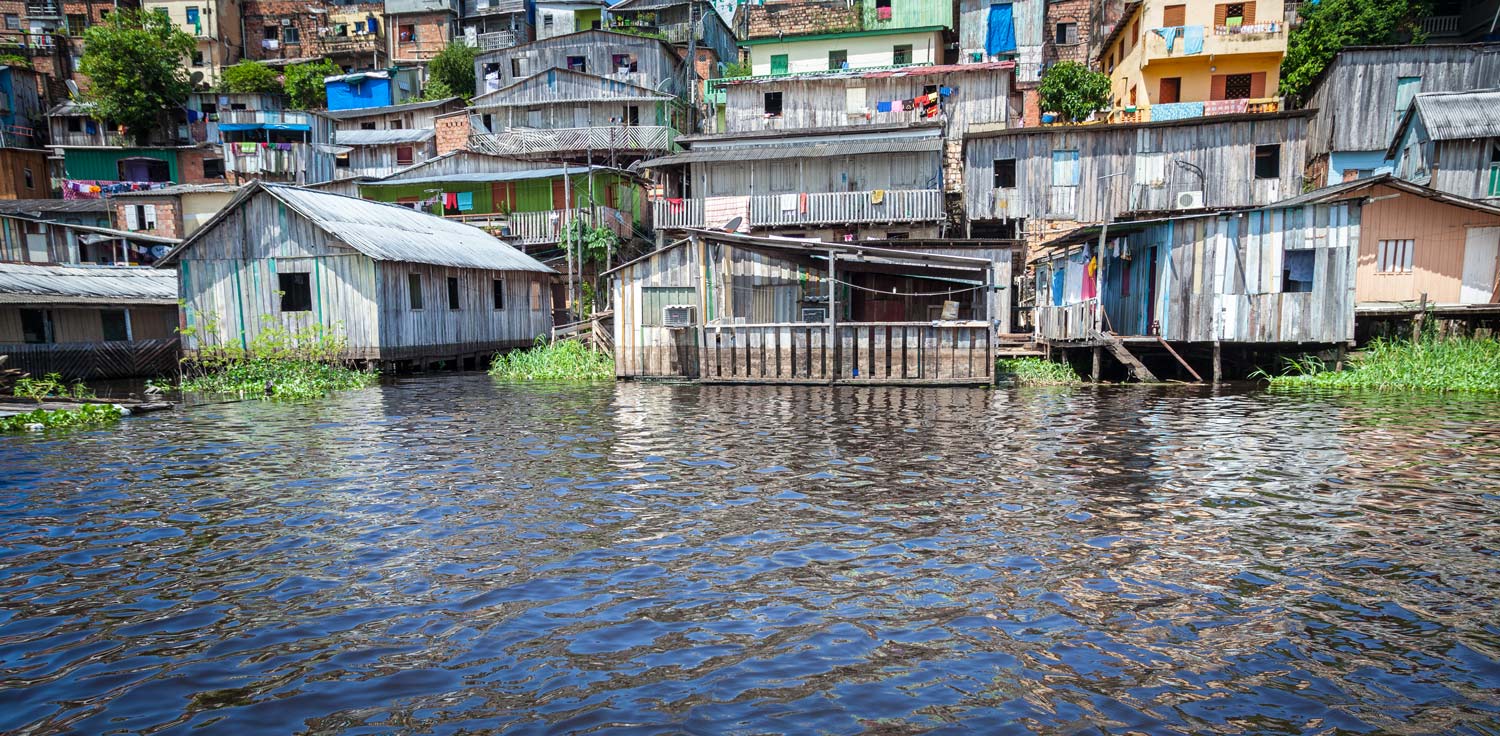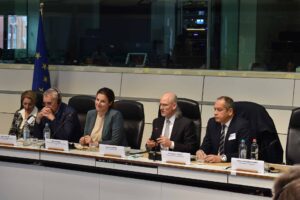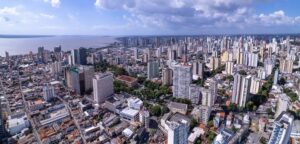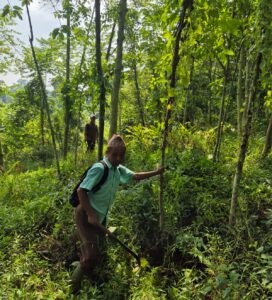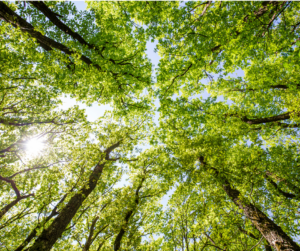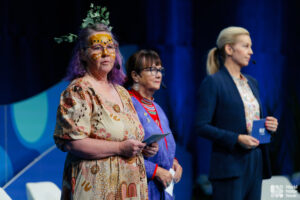Evaluating the status of WASH services in Amazonian schools in Brazil
UNICEF Brazil and SIWI co-organized a multi-stakeholder workshop using the WASH Bottleneck Analysis Tool (WASH BAT) in Manaus, Amazonia, Brazil at the end of 2022. The event assessed the constraints, primarily caused by climate change, which prevent schools in the Brazilian Amazonian from having access to sustainable WASH services.
WASH BAT is a methodology that assesses the enabling environment for the provision of water, sanitation, and hygiene services. It identifies any barriers in the provision of sustainable and efficient services nationally, regionally, across territories, and within communities – and results in the production of an action plan with clear steps for overcoming them.
“The initiative brings together the various water, sanitation, and hygiene actors to make a diagnosis of the sector and agree on an action plan, which ideally should be led by a government agency. The WASH BAT methodology is a step-by-step process that systematically identifies the factors that impede the sustainable provision of sanitation services, as well as defining activities to address their causes,” explains Virginia Mariezcurrena, Program Manager at SIWI.
This WASH BAT was the first to ever be implemented in Brazil and was a pilot project for feeding information about constraints in the WASH sector into UNICEF Brazil´s 20-year flagship SELO program. This program aims to improve the performance of over 2,000 Brazilian municipalities in their various services towards citizens, including WASH provision in schools.
The municipality of Careiro da Várzea was chosen for the pilot as the challenges it faces are representative of those for the entire region; it is a coastal municipality comprised of vast areas of floodplain only reachable by boat. Heavy flooding, caused by climate change, has happened annually for the last two years making it impossible for many children and adolescents to go to school for extended periods of time. Rodrigo Resende, Water, Sanitation, and Hygiene officer at UNICEF Brazil continues, “In this analysis, which integrates several actors, such as UNICEF, SIWI, the Government of Amazonas, the Municipality of Manaus, the Municipality of Careiro da Várzea, federal institutions, and technical partners of the UNICEF Seal, we seek to produce a plan of action that is feasible and consistent with the reality of the municipality.”
Jean Costa de Souza, municipal secretary of Protection and Civil Defense of Careiro da Várzea, further elaborates that alternative systems for water supply must be investigated for the municipality. “More than 6,000 people, including farmers and ranchers, were affected by two consecutive floods in Amazonas [2021 and 2022], as 95% of the municipality is comprised of floodplain. Roads, communities, and the municipal seat itself were underwater for at least four months. In addition to the floods, we face threats of landslides and coastal erosion processes, which also cause socio-environmental and economic damage. This WASH BAT event is an opportunity to investigate alternatives, to offer good water to the residents of the municipality at any time of the year.”
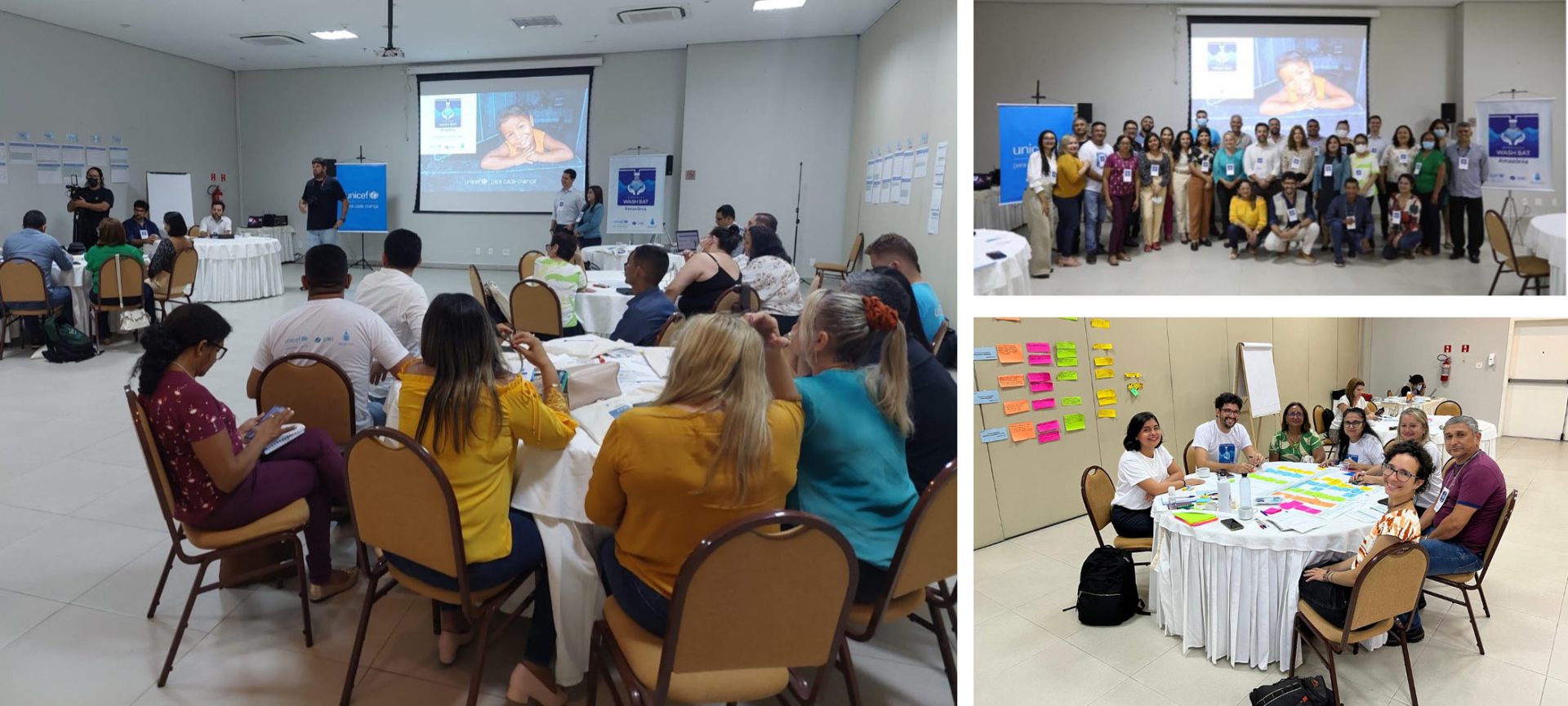
The WASH BAT was preceded by a three-month process, including five webinars, to assess the climate risks in the area and how they affect WASH provision in schools.
During the workshop, methodologies and diagnostic tools were adapted to the Amazonian context, taking into account the information gathered during the earlier webinars. After three days of intense collaboration, participants identified nine priority areas which are essential to lever the bottlenecks affecting the sector in the region:
- Articulate with authorities the need to strengthen political actions around providing safe water, sanitation, and hygiene services.
- Implement mechanisms for monitoring the execution of the services offered, together with governments at both federal and state levels.
- Enable the municipality’s access to national and international climate change funds, such as the Amazon Fund, the Amazonas Climate Change Fund, the Green Climate Fund, and the Adaptation Fund, among others.
- Prioritize investments in sanitation, whilst considering federal, state, and municipal funding sources.
- Improve the WASH diagnostic and monitoring tool in schools.
- Promote the hiring and capacity building of municipal professionals or civil servants in relevant areas of WASH, through enabling access to the ‘Money Direct to School’ (PDDE) program and other programs specific for water (e.g., PDDE-Water), and ensure better financial management and regulation of the sector.
- Research and map appropriate technological solutions specific to the floodplain and flooding areas, with technical support from the federal and state governments and from teaching and research institutions.
- Develop and revise the Emergency Response Plan, with priority given to floods, droughts, and landslides. Ensure integrated communication between state and municipal departments about implementation of risk management strategies with communities.
- Support the creation and strengthening of the water and sanitation department within the works secretariat of the Careiro da Várzea municipality.
Participants finalized the workshop by signing a declaration where these nine priority areas were stated and summarized.
The partners involved in the development of the plan for Careiro da Várzea at the WASH BAT event were: Careiro da Várzea City Hall, Amazonas Health Surveillance Foundation (FVS), Amazonas Sanitation Company (COSAMA), Amazonia State Council for Water Resources (CERH), State Secretariat for the Environment (SEMA), Municipal Secretariat of Education (Semed), Federal University of Amazonas (Ufam), the service provider Águas de Manaus, National Health Foundation (Funasa), World Vision, Peabiru Institute, Mamirauá Institute and Coordination of Indigenous Organizations of the Brazilian Amazon (Coiab).
For more information on the WASH BAT methodology visit www.washbat.org; and for more information of the 2021-2024 edition of the UNICEF SELO program, visit: www.selounicef.org.br.
